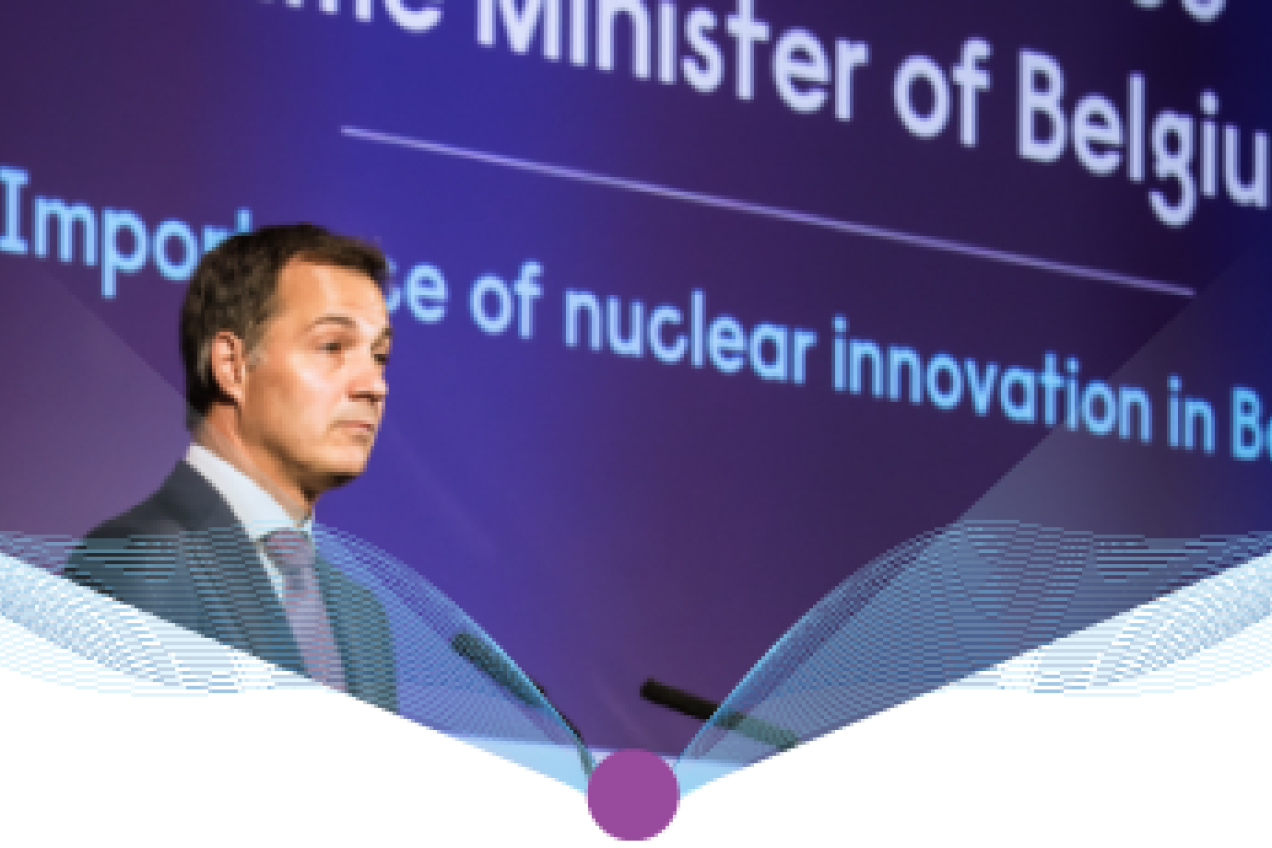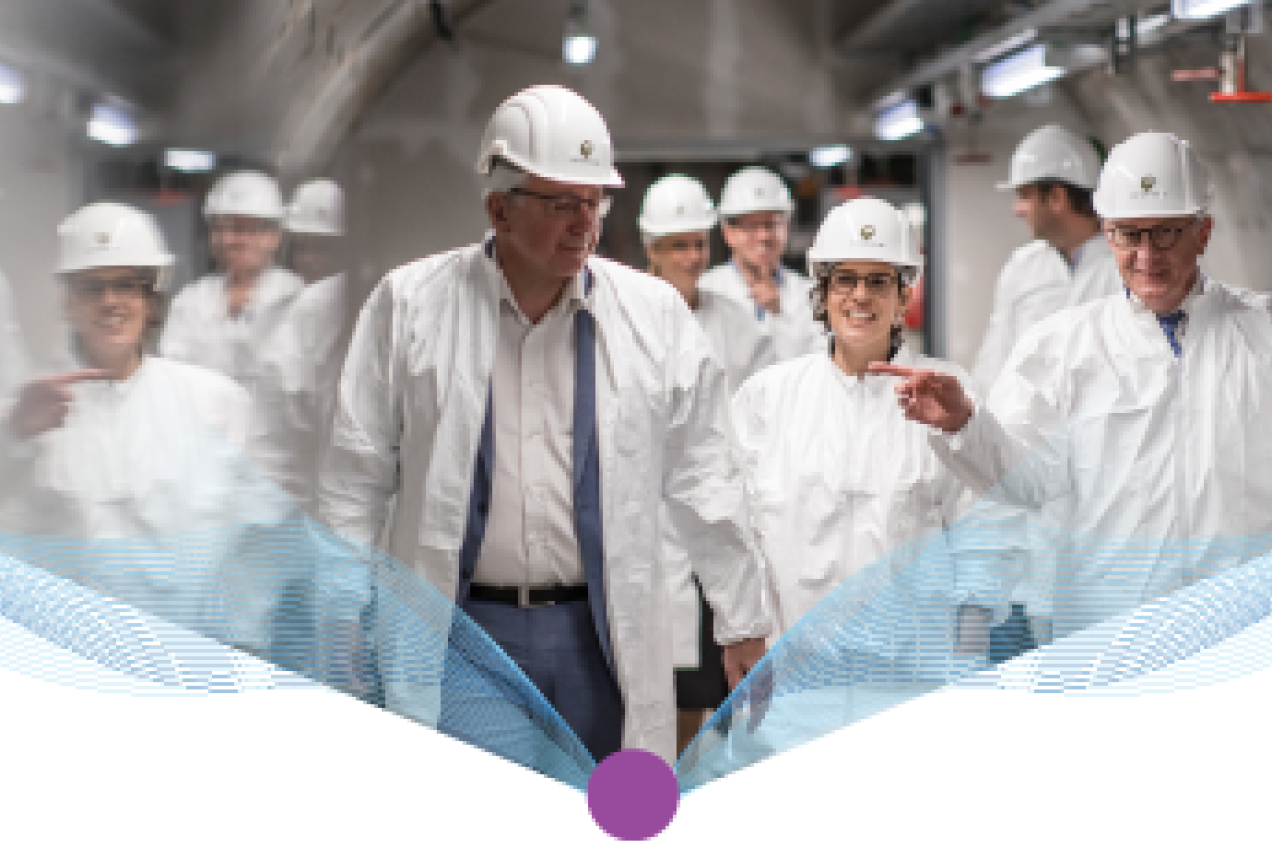'A hub with expertise across the research field'
SCK CEN accelerates scientific quest against cancer
For years, SCK CEN has acted as an indispensable production hub for medical radioisotopes. 'We will continue to fulfil that role, but we also cherish the ambition of evolving into a pharmaceutical player in pre-clinical research,' says Koen Hasaers of the Nuclear Medical Applications research group. The nuclear research centre combines partner missions with its own cancer research line focused on three cancers, and pilot production for five promising radioisotopes.
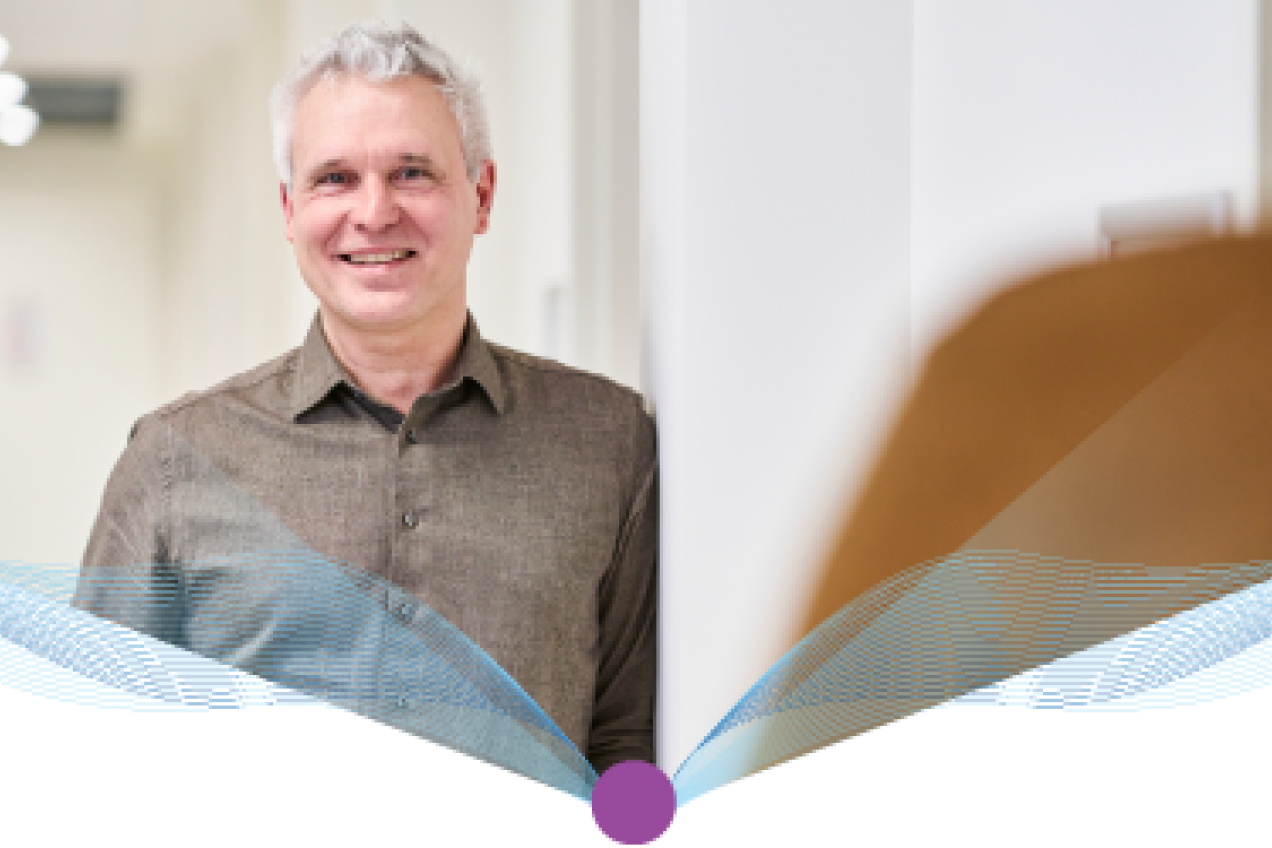
SCK CEN has decades of experience in research in the field of nuclear medicine. To expand this experience in breadth and depth, SCK CEN is pooling all knowledge and expertise in the Nuclear Medical Applications (NMA) research group in 2023. 'The research into therapeutic applications of radiopharmaceuticals tends to lean towards radical breakthroughs in cancer treatment. 'By strategically rearranging our structure, we want to help overcome the remaining barriers,' explains Koen Hasaers, Director of Nuclear Medical Applications.
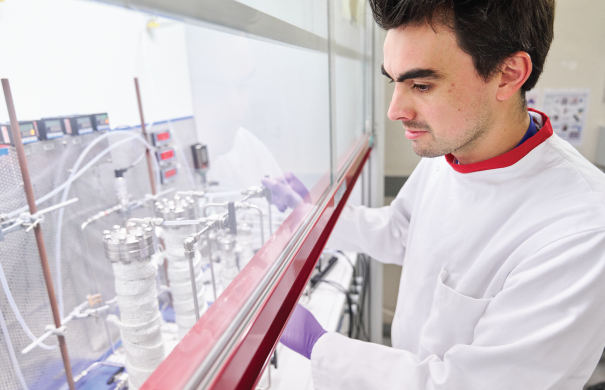
Varied landscape
This new research group at SCK CEN brings together some 100 employees from all subdisciplines of nuclear medicine. 'We connect the field of radioisotopes, with that of body molecules and that of a reliable supply chain to the patient,' says Koen Hasaers. 'You can sense that the cross-fertilisation between all these disciplines makes us an attractive partner. In the coming years, we hope to evolve into an incubator for all players in the diverse field of nuclear medicine.'
Own oncology research line
Since 2022, the team combines partner assignments with its own cancer research line focused on three cancers. Koen Hasaers: 'With our own research programme, we focus on glioblastoma or brain cancer, colon cancer and ovarian cancer. Brain tumours are not as common and therefore receive less attention from commercial partners. Bowel cancer does have a high prevalence and consequently has an immense social impact. We chose ovarian cancer partly because of the high risk of metastases.'
Promising treatment pathway
For brain, colon and ovarian cancer, there have so far been few treatment pathways that work. The SCK CEN research therefore aims to refine the promising pathway of targeted internal therapy. 'The fundamental principle is that you take internal radiation to the right cells and attack the tumour there very locally. As a result, it shrinks or disappears, sparing the tissue around it to the maximum,' explains Koen Hasaers. Among other things, SCK CEN is now investigating which molecules can guide the radioisotopes to the target areas where brain, colon and ovarian cancer develop.
5 isotopes targeted
SCK CEN aims to promote the development of targeted internal radiotherapy. In doing so, the research centre focuses primarily on five radioisotopes with promising potential for that type of therapy. Koen Hasaers: 'Currently, lutetium-177 is the most widely used isotope worldwide. We call it our benchmarker, because other partners are also busy working on it.' Lutetium-177 already offers applications to treat neuroendocrine tumours and metastatic prostate cancer. The four other isotopes focused on by SCK CEN are terbium-161 - which is the successor to lutetium-177 -, actinium-225, samarium-153 and rhenium-188.
New production facility
SCK CEN helps ensure the supply of international healthcare for all five isotopes. The BR2 research reactor collaborates with IRE to produce lutetium-177. The two partners already concluded an agreement in 2021 to increase production of lutetium-177 according to market demand. The licensing procedure to build a new production facility is currently underway. That Central Radiochemical Facility (CRF) is considered a pivotal moment to scale up radiopharmaceuticals. The CRF building will be on SCK CEN's land and is scheduled to be completed by late 2024. From 2025, it could supply lutetium-177 to treat more than 15,000 cancer patients a year.
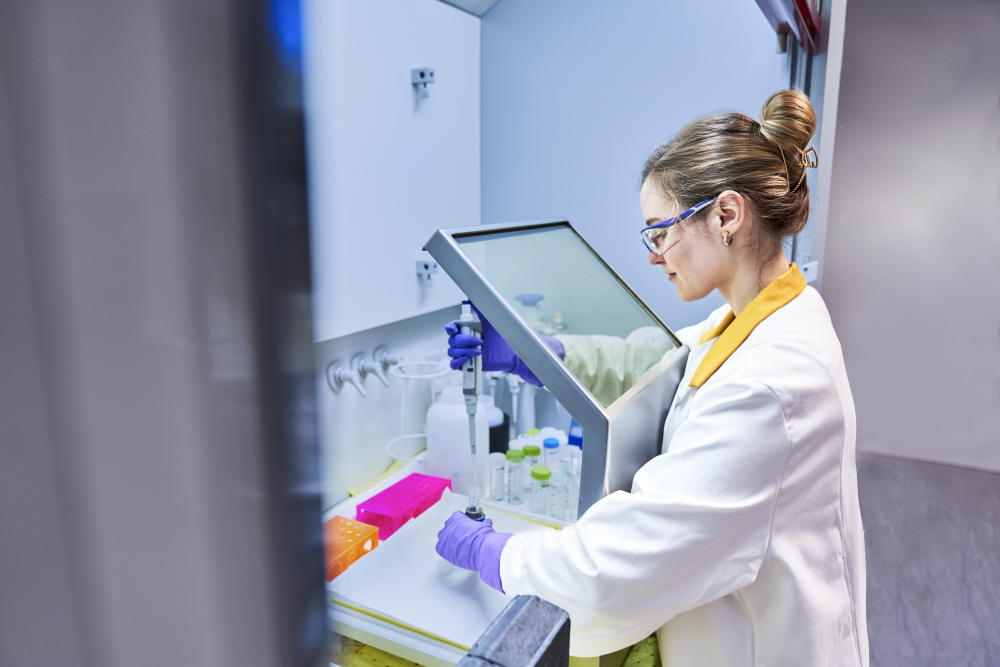
Divergent research paths
The NMA team combines expertise from radiochemistry and radiobiology with other relevant disciplines such as pharmaceuticals. 'Some colleagues or PhD candidates focus on fundamental research, others on clinical applications,' outlines Koen Hasaers. 'Together, we cover the entire research field for nuclear medicine. From: which production processes guarantee the quality of radioisotopes? Through: how do you control the binding characteristics of a radiopharmaceutical to tumour tissue? To: how do you guarantee reliable treatment infrastructure? In the coming period, we want to answer these questions step by step and use our ambitious quest to give tomorrow's cancer patients a better future.'
Want to know more about the CRF facility?
